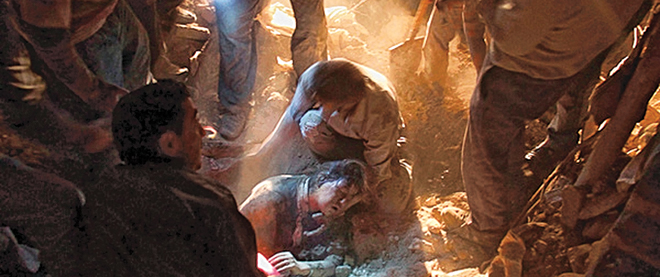Good news

Big deals
While economies around the world continue to struggle, Canada is making some key moves to bolster its long-term health. The Prime Minister’s goal of a free trade agreement with the European Union by year’s end may be one step closer as he meets German Chancellor Angela Merkel during her first bilateral visit to Canada this week. Meanwhile a report from the C.D. Howe Institute suggests the much-discussed productivity gap could shrink fast. It predicts Canada will outpace other OECD countries in business investment by the end of the year, with firms in Alberta expected to invest more than double the U.S. average.
Coming clean
A former Bank of China manager who hid for nearly a decade in Vancouver has fessed up about allegations that he swindled customers out of more than 1 billion yuan ($150 million). Gao Shan fled to Canada in 2004 to escape fraud charges. He kept a low profile here, working as a handyman, and became a permanent resident. But his lawyer said Gao recently decided to return home because he was tired of living “with a cloud over his head.”
Bat out of hell
One hour. That’s how long it would take the hypersonic WaveRider to fly from New York to London—about three times faster than Concorde. Built by the U.S. Air Force and NASA, the unmanned experimental jet was expected to reach Mach 6, or about 5,800 km/h an hour, during a test flight over the Pacific Ocean this week. Though currently intended as a military weapon, scientists say the WaveRider’s technology could one day be used to dramatically speed up commercial air travel. In this, at least, America still has the Right Stuff.
In sickness and in sports
Researchers have found some reassuring signs for the venerable institution of marriage. A recent U.S. poll found 86 per cent of young Americans expected marriage to last a lifetime (even though half end in divorce). Meanwhile, researchers at the University of Bristol discovered that diehard football fans were five times more likely to exhibit signs of stress when tearing up a photo of their wives, as opposed to a picture of their favourite team, Newcastle United. Who said love is dead?
Bad news

Watching their language
Parti Québécois Leader Pauline Marois not only wants tougher language laws in the workplace, but has suggested the new, American-born CEO of troubled engineering giant SNC-Lavalin “at least” become bilingual. Meanwhile, Premier Jean Charest is promising to help Quebec companies fight unwanted takeovers in the wake of U.S. home improvement retailer Lowe’s recent bid for Rona. Quebec’s economy may have weathered the recession reasonably well, but that’s no reason to make it a pawn in the eternal language wars now that it’s once again teetering on the brink.
Life in the fast lane
Young drug users take all of 10 minutes to locate their poison of choice on Vancouver’s streets, says a study conducted by the B.C. Centre for Excellence in HIV-AIDS—less time than it typically takes the rest of us to find a nice, legal bottle of wine. As Dr. Evan Wood, author of the study, notes, the war on drugs has been underway for 40 years, with few positive results—unless you’re a junkie on the streets of Vancouver looking for a quick fix.
Not-so-neighbourly
Alberta Premier Alison Redford says it’s been weeks since she’s heard from fellow B.C. Premier Christy Clark, who walked out of a meeting last month after demanding her province receive a share of Alberta’s royalties from the controversial Northern Gateway pipeline. Though Clark, who is on vacation, has legitimate environmental concerns about the proposed $5.5 billion project, there’s no reason why Alberta and B.C. shouldn’t be able to reach a timely agreement on a key piece of national infrastructure. Or at the very least pick up the phone and talk about it.
The perils of multi-tasking
Edmonton police this week pulled over a motorcyclist for texting while driving. The biker’s response was to speed away—into oncoming traffic. A candidate for a Darwin Award, you say? Actually, texting at the controls is becoming all too common: A recent Transportation Safety Board report found texting likely contributed to a fatal plane crash in northern B.C. Which is something Toronto Mayor Rob Ford might think about the next time he reads documents on an expressway.